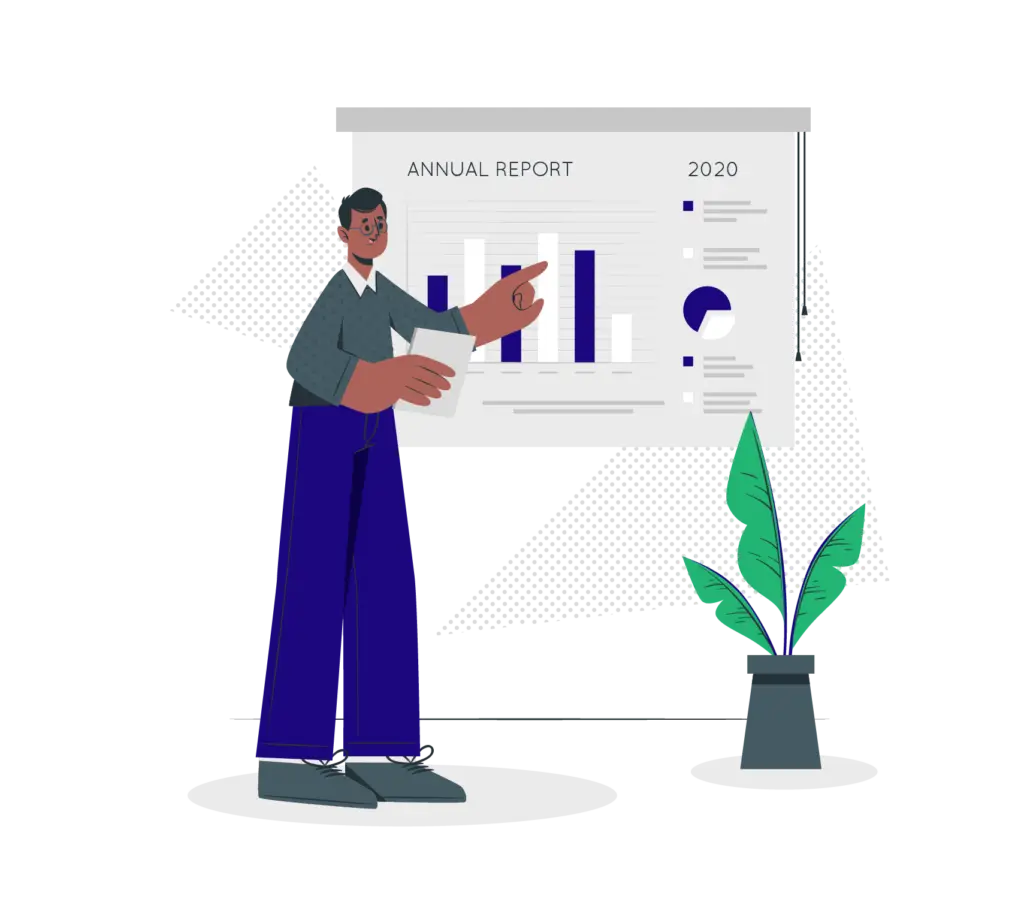In a world where access to clean and safe water remains uncertain, one organization stands as a beacon of hope, dedicated to the noble cause of ensuring water for all.
|
Welcome To the story of WASREB, Kenya’s National Water Sector Regulator. |
The Water Services Regulatory Board, WASREB, is Kenya’s state corporation established under the Water
Act of 2016 and starting operations in April 2017. WASREB’s main mandate, as indicated in Section 70 (1) of the Water Act, is to protect consumers’ rights to water while also safeguarding the interests of other stakeholders.
To achieve this obligation, WASREB establishes standards and regulations that all water services providers must follow, to ensure consumer protection and promote access to efficient, affordable, and sustainable water services.
These standards and regulations are implemented through nine key performance indicators designed to monitor and assess the performance of Water Service Providers. These performance indicators include Water Coverage, Drinking Water Quality, Non-Revenue Water, Metering Ratio, Sanitation Coverage, Dormant Connections, and Hours of Supply, among others.
Additionally, WASREB enhances the financial sustainability of Water Service Providers WSPs through policy actions that take account of cost recovery tariffs.
WASREB embarked on its journey in 2003 following the enactment of the Water Act of 2002, which aimed to ensure equitable access to high-quality water services for all. Initially tasked with overseeing Water Services Boards, WASREB’s mandate evolved with the implementation of the Water Act of 2016. This updated legislation redirected WASREB’s focus to directly regulate Water Service Providers operating under county governments.
Under the leadership of its inaugural CEO, Mr. John Rao Nyaoro, WASREB commenced operations with a modest team of just five employees. During this time, office space was shared with two other water agencies, namely the Water Sector Trust Fund (Water Fund) and the Water Resource Authority (now WRA).
At the time, seven Water Services Boards (WSBs) were established along the drainage basins that included the Tana River Basin, Lake Victoria and Athi river Basins, and WASREB was responsible for licensing them. However, the Water Service Boards were not allowed to provide services directly, instead, they had to contract Water Service Providers (WSPs) to ensure water services were available to all parts of the country through the signing of Service Provision Agreements with Water Service Providers.
Following the exit of first CEO Mr. John Rao Nyaoro in 2005, WASREB has seen several leadership changes. Eng. H.K. Maina served as CEO from 2006 to 2008, followed by Eng. Jackeline Musyoki in 2009. Eng. Daniel Baraza took over in 2010, and Eng. Robert Gakubia led from 2010 to 2021. In 2021, Eng. Peter Njaggah was appointed as acting CEO, succeeded by Joseph Keter in 2022 in the same capacity. Dr. Julius Itunga took over in 2022 and has been the acting CEO since then.
Over the years, navigating the path marked by success and challenges. Internally, there have been struggles with stakeholder engagement, staffing, and enforcement within the organization. Externally, issues such as the low operational efficiency of WSPs, political interference, and the impacts of climate change have also posed significant hurdles.
Furthermore, over the years, there have been additional challenges in regulation, such as unreliable water sources, water contamination, inadequate infrastructure, and the persistent issue of low sanitation coverage in the country. To address these issues, the Water Services Regulatory Board (WASREB) has published various insightful publications on the water sector in Kenya, including the Water Governance Training Handbook, Water Safety Planning Guide, and Aqualink, among others.
Furthermore, over the years, there have been additional challenges in regulation, such as unreliable water sources, water contamination, inadequate infrastructure, and the persistent issue of low sanitation coverage in the country. To address these issues, various insightful publications on the water sector in Kenya have been released, including the Water Governance Training Handbook, Water Safety Planning Guide, and Aqualink, among others. One notable publication in this regard is the ‘IMPACT’ report, which serves as a performance evaluation of Kenya’s water services sector. This comprehensive report also details impact activities within the sector, with 15 editions published since 2004 and the launch of the 16th edition, ‘IMPACT 16’, scheduled for June 20th, 2024. The impact extends beyond regulation, providing a platform for the community to voice their concerns on water services. This has been achieved through public consultations where issues of service improvements are discussed, leading to positive outcomes such as better management of community water systems and a reduction in non-revenue water, thereby promoting sustainability and resilience. In its unwavering commitment to equality and universal access to water services, interventions are prioritized to ensure access to water for the underprivileged as a vital aspect of service to low-income areas.
These interventions have benefited the most vulnerable communities, ensuring equitable access to water services irrespective of their socio-economic standing. This service to the needy has also been integrated into performance indicators, mandating that all water service providers demonstrate their commitment to serving the underprivileged and marginalized populations.
But the work is far from over, as Kenya continues to grow and develop the demand for water and sanitation services will increase. That’s why WASREB remains dedicated to its mission of ensuring water services for all. This commitment involves not only meeting today’s needs but also planning for future generations, ensuring sustainable and reliable water services as the country continues to grow towards its vision 2030.
Commemorating an extraordinary journey, a tale marked by resilience, empowerment, and optimism. Together, we can forge a path towards a future where every Kenyan enjoys access to clean and safe water, ensuring no individual is marginalized.
As we navigate through evolving challenges and opportunities, your support and engagement remain indispensable. Let’s collaborate closely to establish a legacy of sustainable water management and ensure universal access, leaving a profound and enduring impact on communities throughout Kenya. Together, we can translate this vision into tangible outcomes, guaranteeing that, as regulators, every Kenyan accesses the water necessary for their flourishing.
WASREB @20,
Water Services For All!
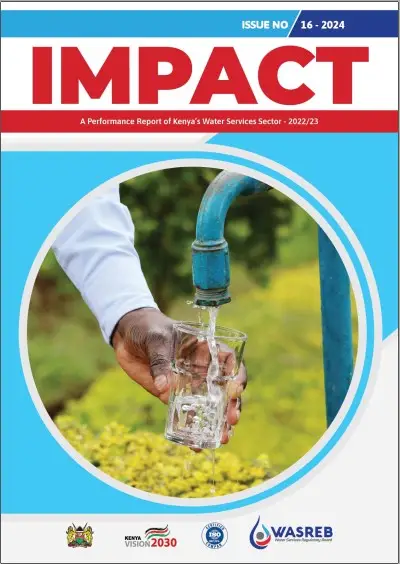
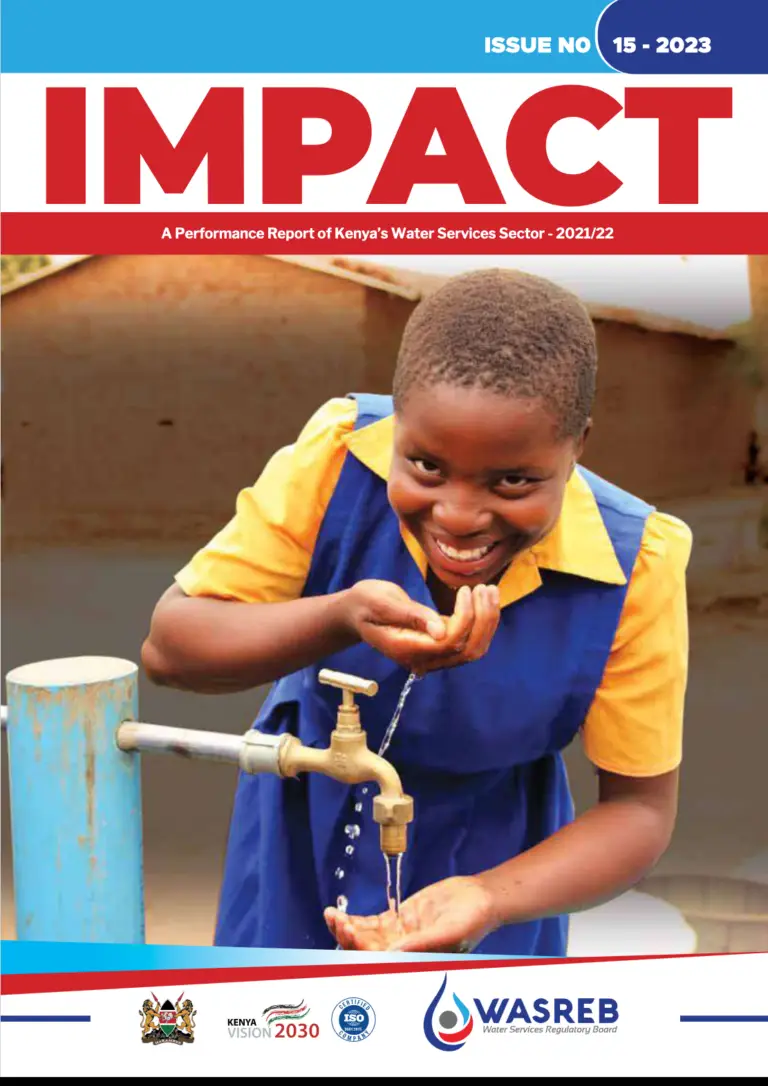
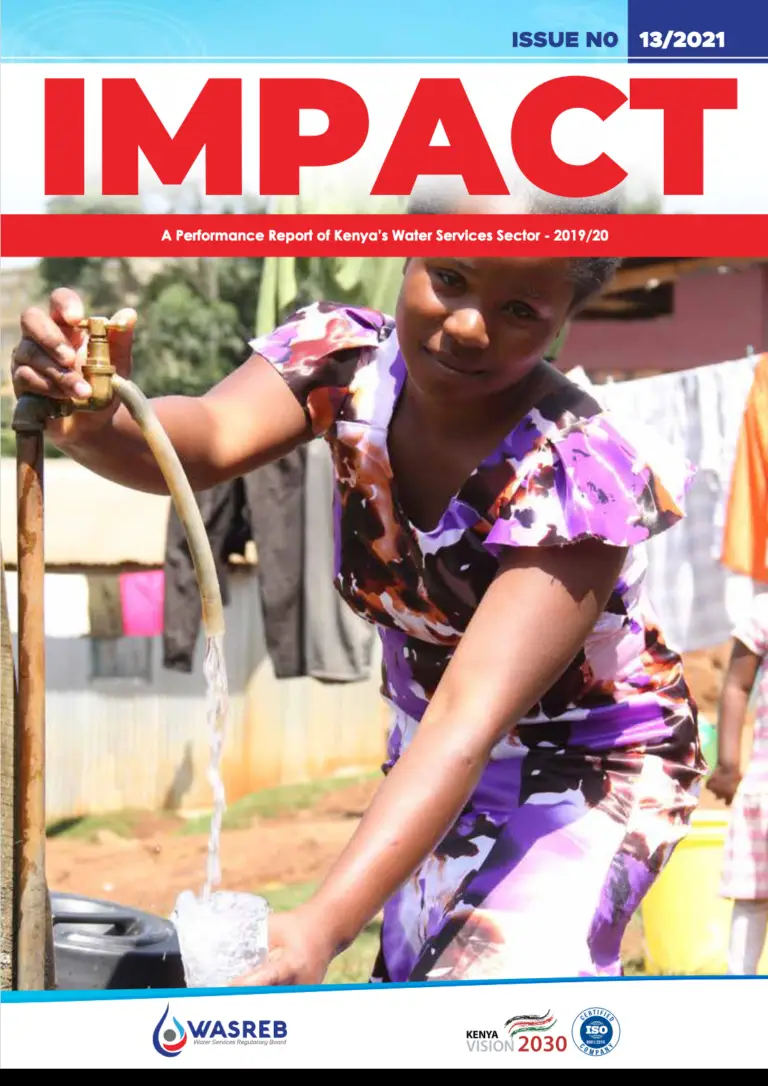
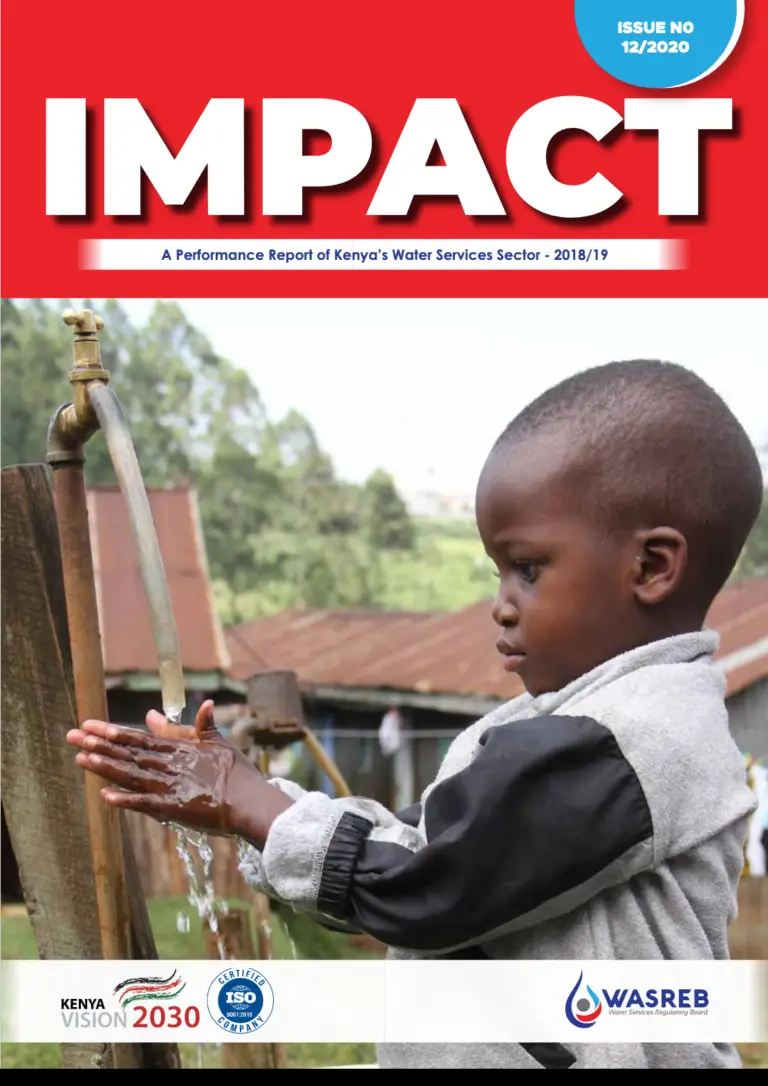
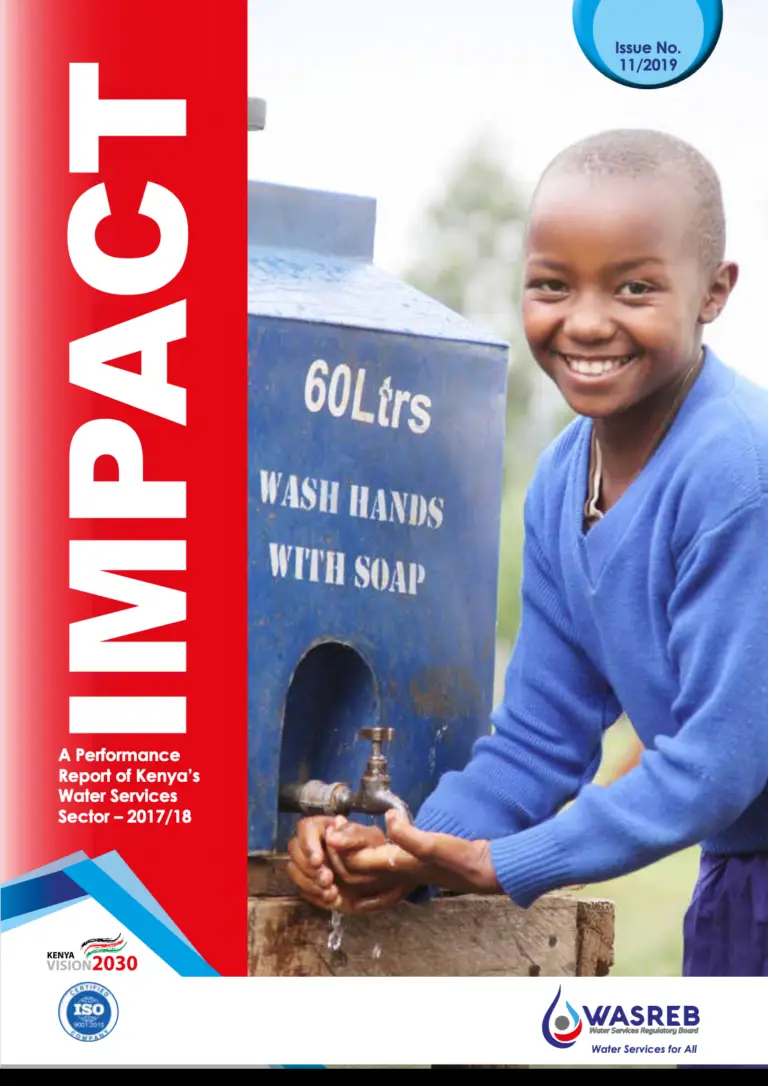
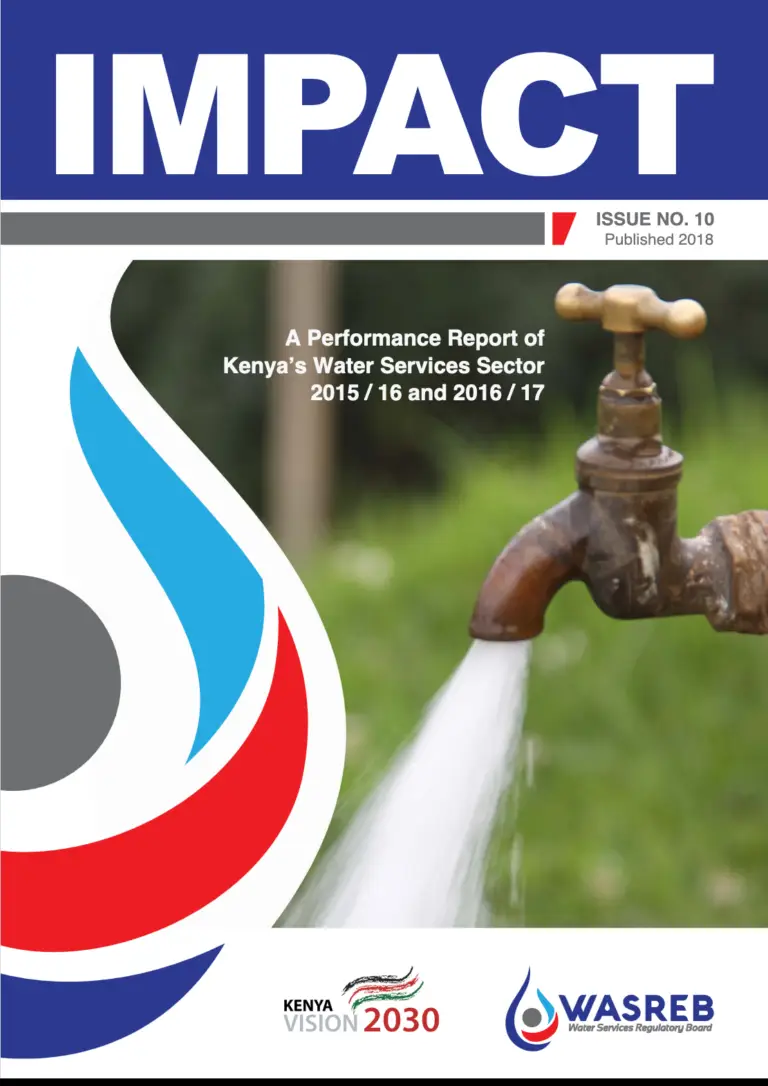
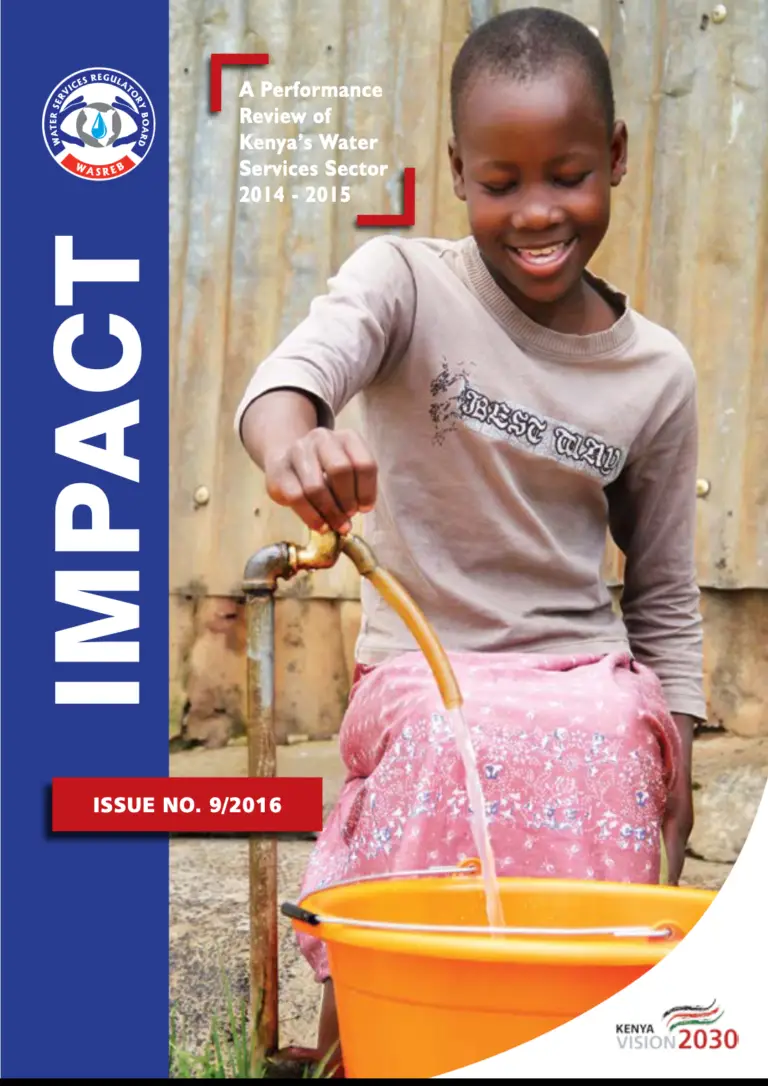
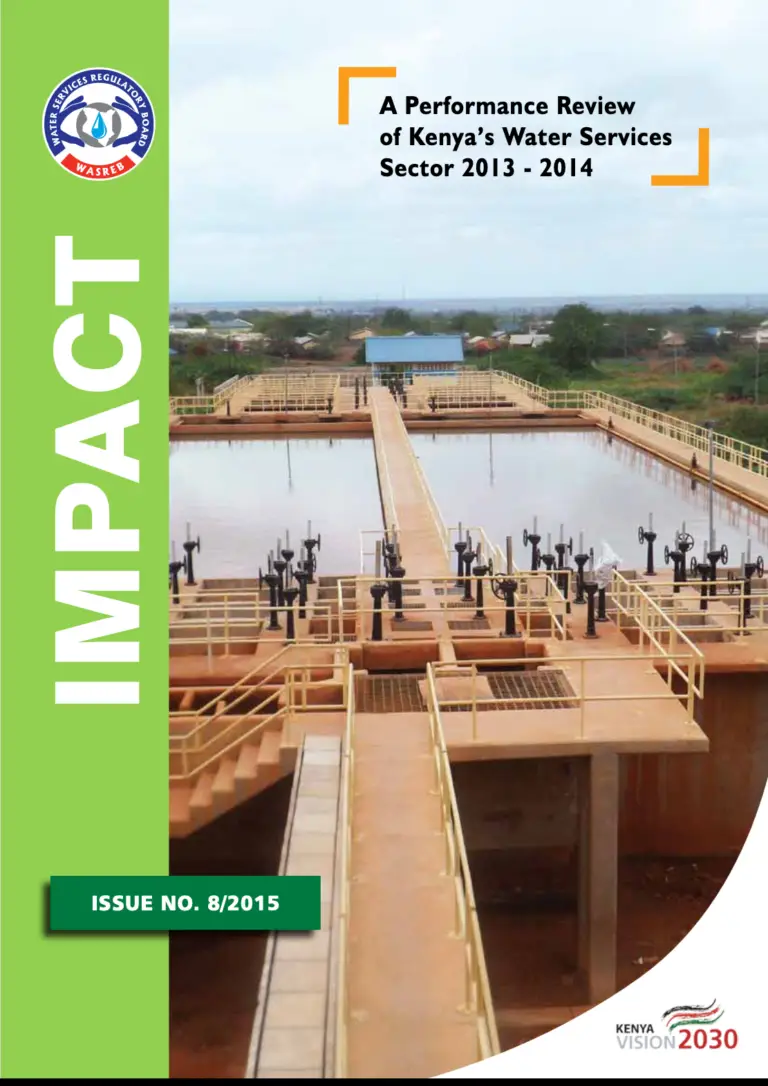
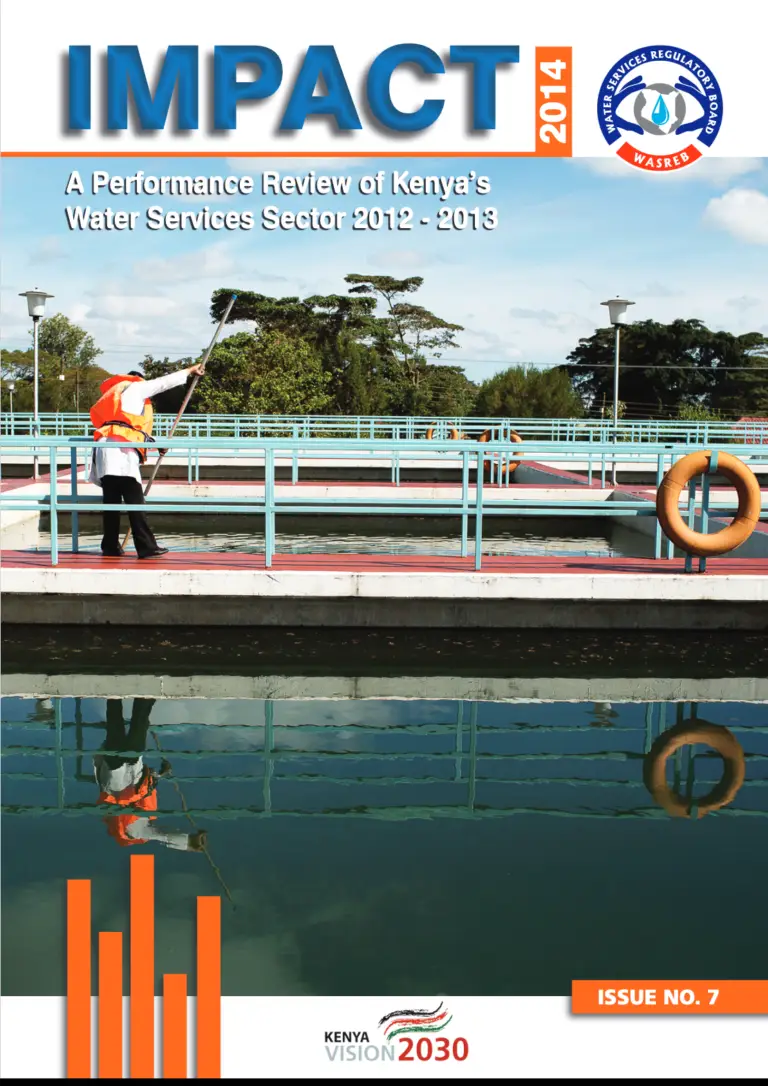
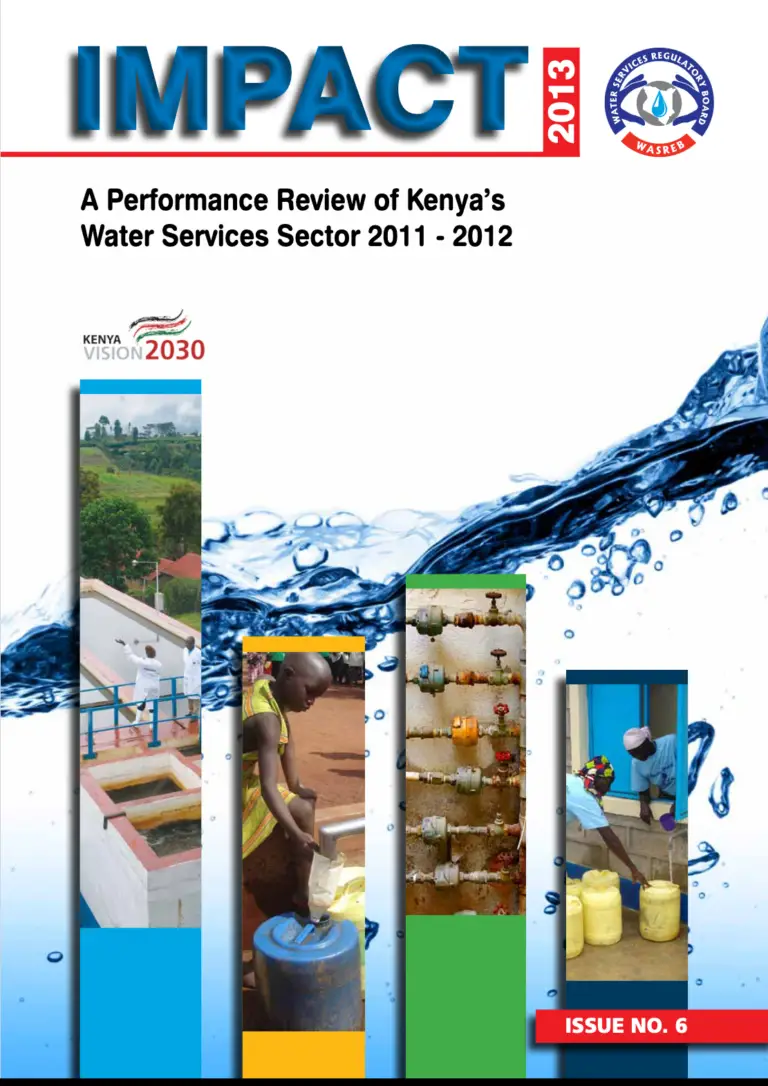
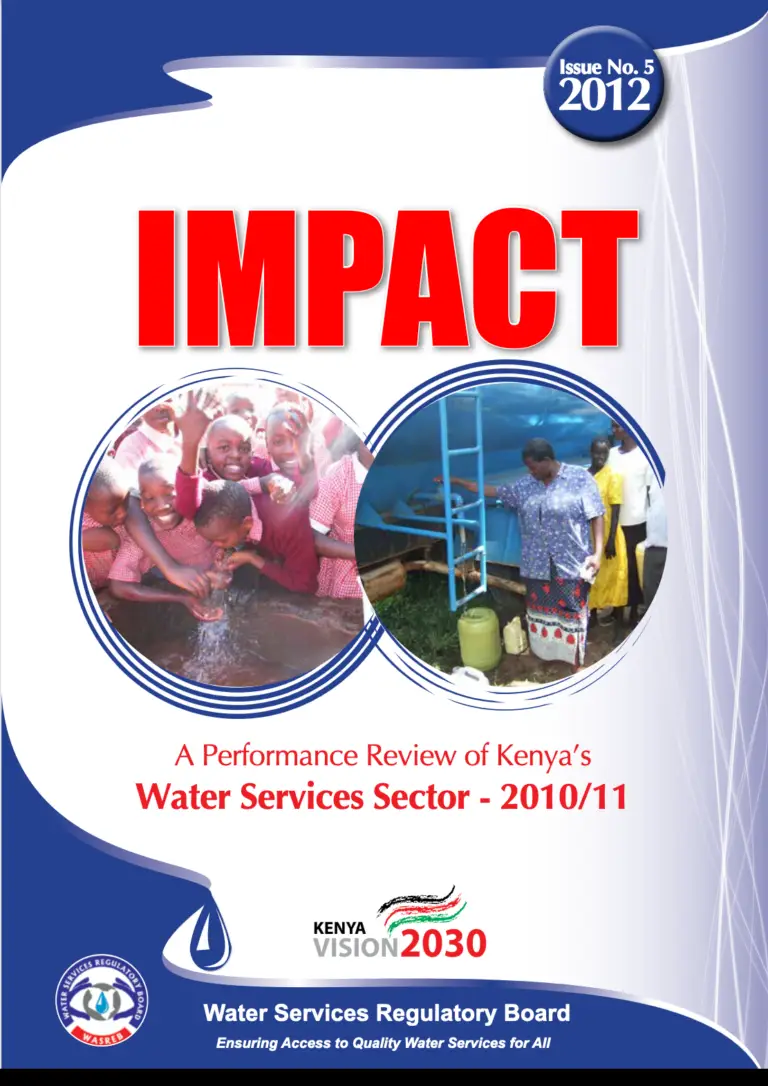
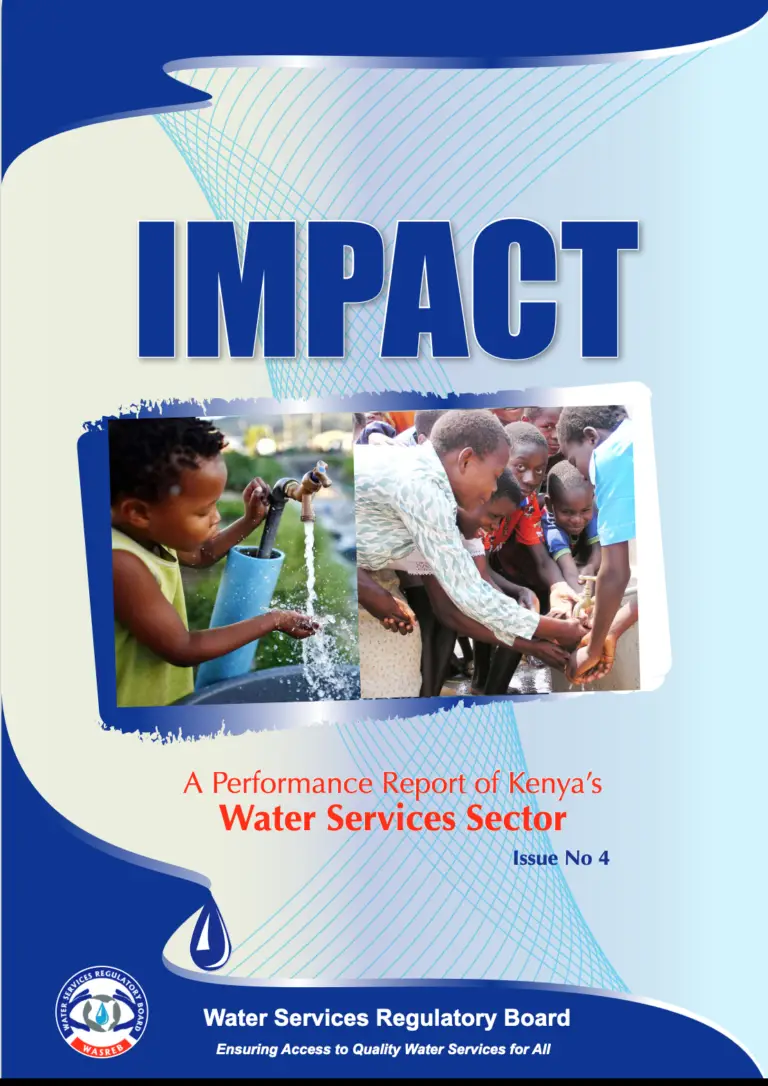
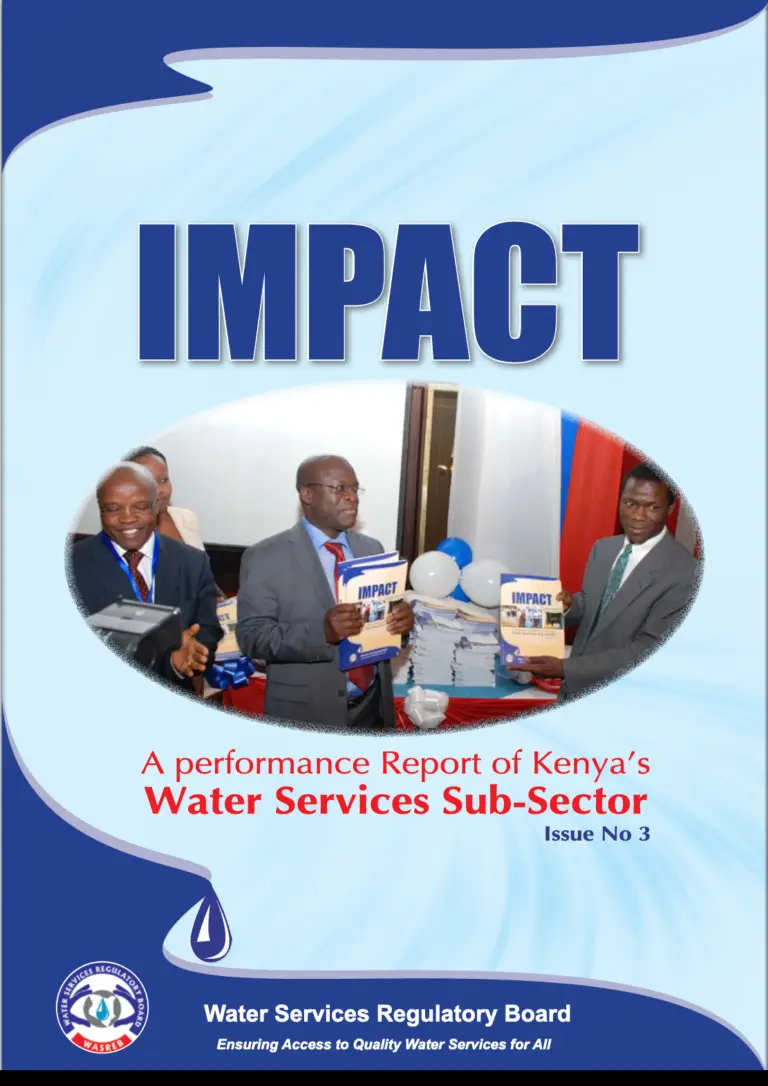
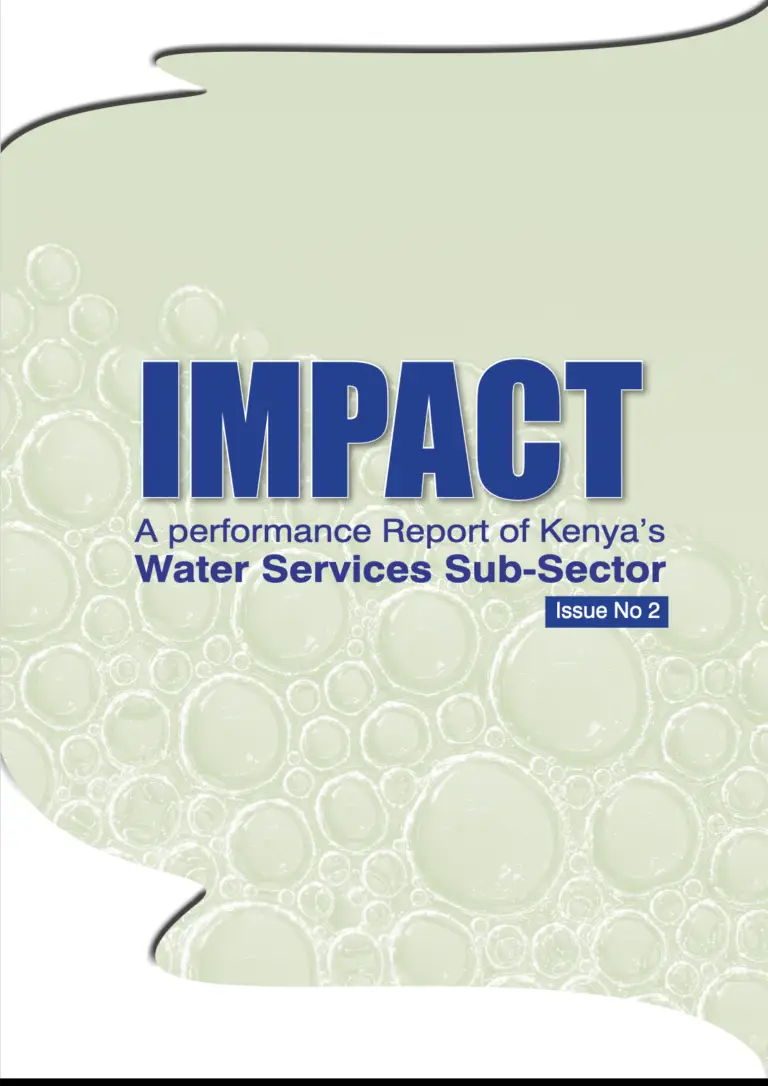
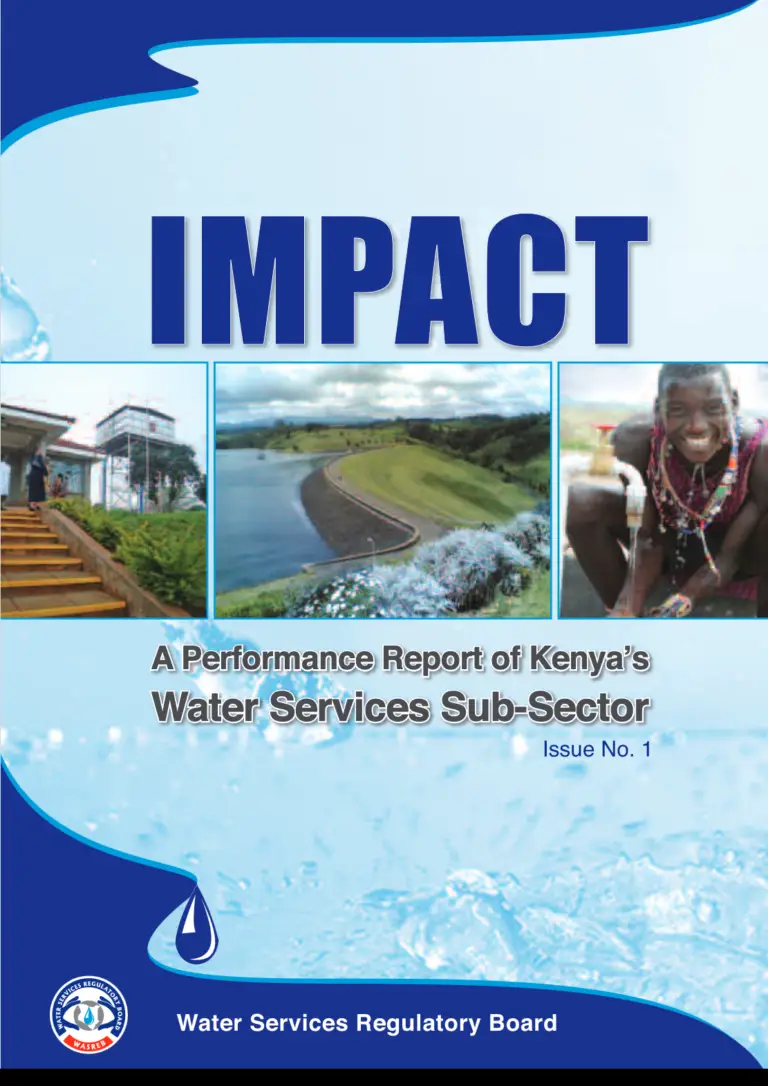

Useful Links
Services Provided
Media & Publications
Follow us
Address
- 5th Floor NHIF Building Ngong Road
- P.O. BOX 41621-00100, Nairobi, Kenya

